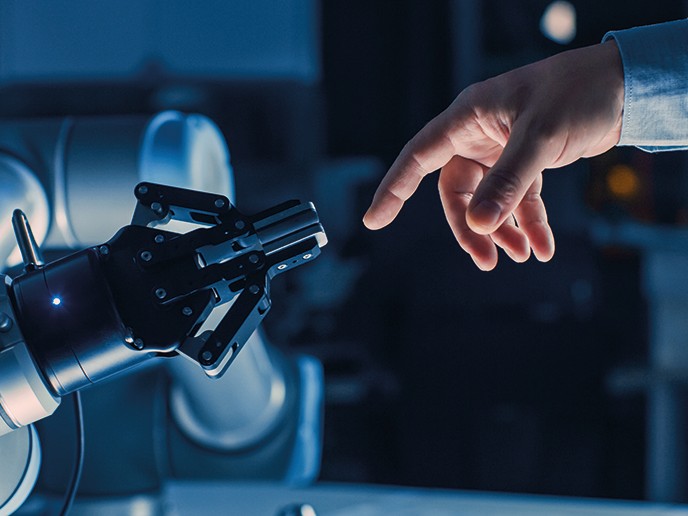Artificial Intelligence: Turbocharging European industry
‘Industry 5.0’ is a term that has been gathering pace over the past few years, with its broad definition being a major shift within industrial production towards a much closer and intertwining state of cooperation between humans and machines. It promises the creation of a new symbiotic environment between a workforce comprising both human operators and increasingly autonomous and intelligent mechanical colleagues. This transition is being heavily influenced by the phenomenal growth in advanced robotics and Artificial Intelligence (AI), and consequently offers many golden opportunities for Europe.
Harnessing the benefits of AI
Manufacturing and industrial production have remained a constant backbone to Europe’s economic prosperity and growth for more than two centuries. And it’s here on the factory floor where some of the first major AI-based innovations are being pioneered and rolled out. The infusion of AI processes into manufacturing offers many positive benefits, such as the development of novel industrial processes for both existing as well as newly-emerging industries, enhancing production efficiencies and redefining the role of human workers as they take on new roles and responsibilities to collaborate with and supervise the (often repetitive) tasks of their AI-powered machine co-workers. Importantly, the use of AI/Augmented Reality techniques in factories promise to make human roles less hazardous, less monotonous and less physically exhausting.
Supporting the spread of AI in European manufacturing
However, there is still much work to be done to completely overhaul and adapt European industry to these new technologies and, by extension, these new opportunities. This is regardless of the fact that Europe is already one of the world’s major leaders in the development of AI. Therefore, the European Commission is dedicated to enhancing Europe’s leadership in the field of AI, viewing it as an area of strategic importance and a crucial source of future economic growth. The European Commission has been working hard with Member States to foster a genuinely collaborative AI strategy, embodied in the 2018 Communication ‘Artificial Intelligence for Europe’(opens in new window), which also emphasises the importance of AI in European manufacturing. The Commission has also massively increased its funding of AI research through the Horizon 2020 programme, with EUR 1.5 billion having been pledged for the period 2018-2020, and will keep funding AI research and applications through Horizon Europe and Digital Europe programmes.
13 pioneering projects
This CORDIS Results Pack showcases 13 projects that have been pioneering the way forward with AI technologies geared towards industry and manufacturing. Some of the featured projects, such as COROMA and MONSOON look into the ways in which the use of AI tools and advanced manufacturing robots, equipped with sensors and capable of adapting to the manufacturing environment, can increase the productivity of production, whilst others including Factory2Fit, MANUWORK and THOMAS, look into the complementarity and interaction potential of human-robot and robot-machine collaboration. Meanwhile, some projects, such as GO0D MAN and SERENA, also explore the potential of using AI-based tools for optimising the production process in terms of more efficient maintenance (e.g. predictive maintenance in connected industrial work sites) and zero-defect manufacturing. Finally, others, such as ResiBots have focused their work on customised production and even making robots capable of recovery.



